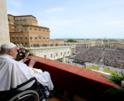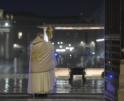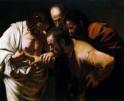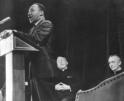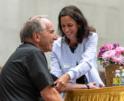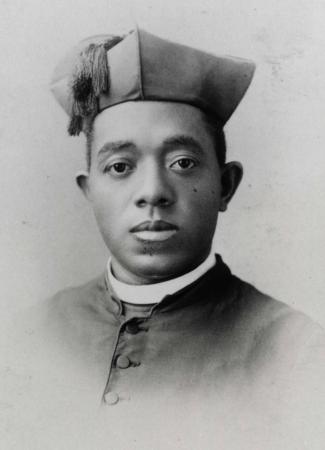
Culture
One month after Father Tolton was ordained, Charles Lwanga and his companions would be massacred in Uganda for embracing the Catholic faith.
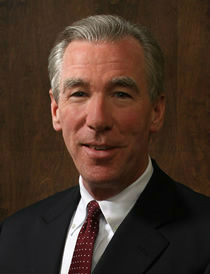
Garvey
"For the slave called in the Lord is a freed person in the Lord," St. Paul wrote in his First Letter to the Corinthians. His words resounded 18 centuries later in the life of Father Augustus Tolton, who was born a slave, died a Catholic priest, and is now being considered for sainthood.
Father Tolton's cause was submitted to the Congregation for Saints' Causes in September by the Archdiocese of Chicago. If canonized, he would be the first African-American priest recognized as a saint. Young Augustus escaped slavery when his mother rowed her family across the Mississippi River from Missouri to Illinois in 1862. His talents caught the attention of the Franciscan professors at Saint Francis College in Quincy, Illinois. With their encouragement, he aspired to become a priest and a missionary to Africa.
It was a courageous assignment to seek. One month after Father Tolton was ordained, Charles Lwanga and his companions would be massacred in Uganda for embracing the Catholic faith. Father Tolton, who clearly took after his mother, was willing to brave such an environment.
But God had other plans: to serve the church in a nation that openly disdained him because of the color of his skin.
The prejudices of the day prevented Father Tolton from attending a seminary in the United States. He went to Rome instead. His fellow students, he said, "all were my friends, they all loved me, though I cannot say why."
The St. Joseph's Advocate, a newsletter published in the United States by the Josephite Fathers in those days, described Father Tolton's April 24, 1886 ordination at Rome's Basilica of Saint John Lateran this way: "[B]efore he leaves that grand basilica, see what happens . . . grand Caucasian heads, some as white [in] hair as in skin, some young and beautiful, some princely, some priestly, but all uncovered, bowed low on their humble supports, bended knees, at the feet of this poor American Negro and ex-slave, that his two black palms may touch their crowns! May we live to see the day when this scene will be enacted in the Cathedral of Baltimore with a goodly number of this colored mission looking on."
Father Tolton was deployed not to Africa, but to Quincy. He established St. Monica Church, the first Catholic Church in America built by and for a black community. His brief life -- he died of heat stroke in 1897, when he was 43 -- would be spent serving God in a nation where racial equality remained elusive.
Americans today would find hard to understand the indignities he suffered. But we have some hints from the historical record. Among the documents gathered by the website www.toltoncanonization.org is a speech from 1890, delivered by a black Catholic layman, Lincoln Valle, at an event for the archbishop of Chicago. Valle acknowledged Father Tolton's presence, then went on: "Most Rev. Father, we only pray that the Negroes of these United States will soon understand that if prejudice is to remain for a season on earth there is one place where it must be unknown and that is within the sacred [circle] of the Catholic Church. We hope he will soon learn that the solemn dogma of the Catholic Church is the equality of all men before their God."
Valle was right. Many American Catholics of that time were wrong. But rather than judge past generations for their sins, we should learn from their mistakes and from the lives of people like Father Tolton.
"Virtue has consequences," said Cardinal Francis E. George of Chicago about Father Tolton's life, "and virtue is stronger than evil."
---
Garvey is the president of The Catholic University of America in Washington.
- Garvey is president of The Catholic University of America in Washington, D.C.
Recent articles in the Culture & Events section
-
The call of Pope Francis' final Easter messageMichael Reardon
-
The best of Francis: Five unforgettable momentsElizabeth Scalia
-
Scripture Reflection for April 27, 2025, Sunday of Divine MercyDeacon Greg Kandra
-
Dr. King's visit to Boston and St. John's Seminary 60 years agoViolet Hurst
-
The honor of caring for our priestsKate Marshall

